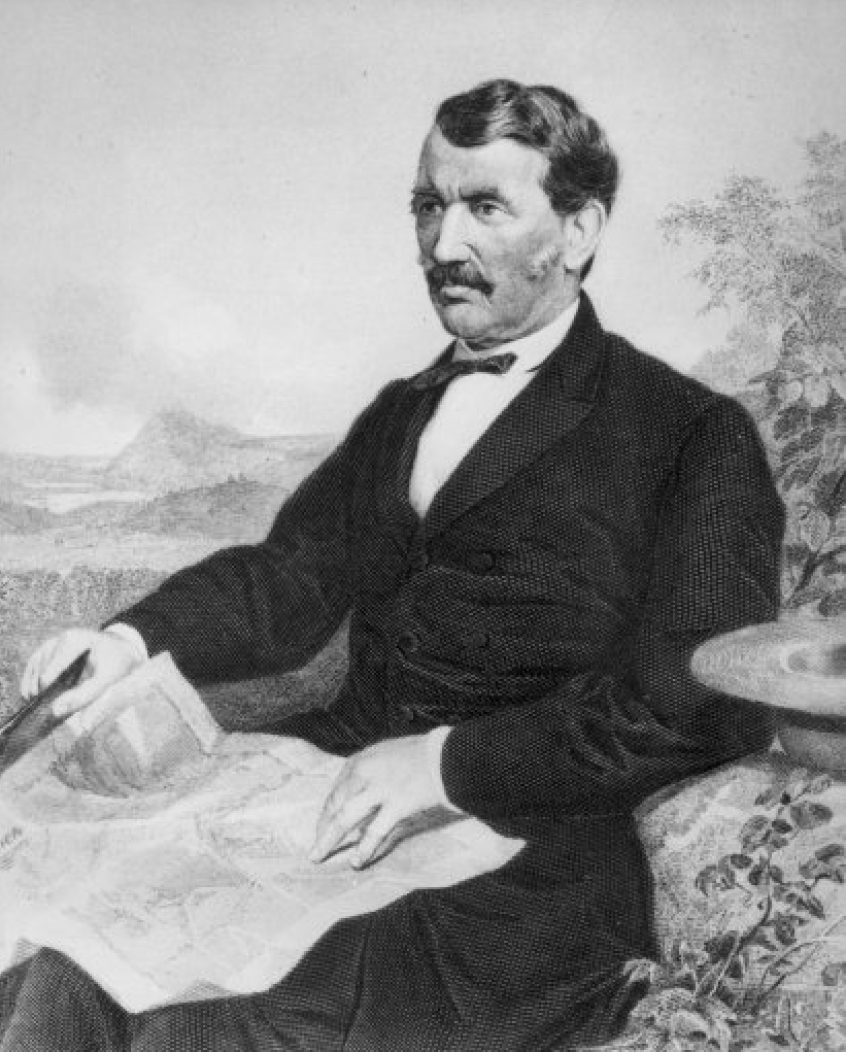
Christians met in Edinburgh on Saturday to consider the legacy of Scottish missionary and explorer David Livingstone.
The conference was held by the University of Edinburgh's School of Divinity as part of a programme of events taking place to mark the bicentenary of Livingstone's birth on 19 March 1813.
The Right Reverend James Tengatenga, Bishop of Southern Malawi, said there was still a sense of "awe" surrounding David Livingstone in Malawi today.
Livingstone was born in the small Scottish town of Blantyre. He went to Africa as a medical missionary in 1840 and would lead extensive explorations across the interior and central Africa.
Exploring Livingstone's legacy today, Bishop Tengatenga said Livingstone had been different from others in his day for the respect he showed indigenous cultures and languages, a respect that often gained the trust of local people and chiefs.
Bishop Tengatenga described Livingstone as an "itinerant trailblazer" who did not understand himself as a typical missionary.
"He was just a small part of the greater work being done by others … He understood missions differently. Exploration was not antithetical to it but integral to it."
The bishop noted that many Christians in Malawi, including himself, trace their faith in some part back to Livingstone.
"The story [of the church] is not complete without giving David Livingstone a place or role in it. I can't tell the story of my faith without telling the story of David Livingstone," he said.
Livingstone was a vocal campaigner against the slave trade and he was concerned about economic development and self-sufficiency not only for the indigenous people, but for the missionaries spreading the Gospel among the people.
"David Livingstone was a visionary, he dreamed of things to come," said Bishop Tengatenga said.
The conference also reflected upon the challenges facing Malawi today, including widespread poverty.
With less than one per cent of the population going to university, the conference heard that Livingstone would have been disappointed with some of the developments that came after him, including the widespread poverty that exists today.
Dr T Jack Thompson, of the University of Edinburgh, said a "myth" surrounding Livingstone in Malawi had been created in Livingstone's time largely by the Scottish missionaries who followed him "because to them he was a hero".
"We would like to think that we Westerners have transformed Malawi but when you go into the poorest villages, has it really changed all that much since David Livingstone was there in 1859?" he said.
Dr Ken Ross, Honorary Fellow of the School of Divinity, spoke of the deep sense of injustice that grew with colonialism, saying Livingstone's legacy was "not without its moments of ambivalence and conflict". Malawi in the 20th century would, he said, be characterised largely by a tension between white domination and rising African aspirations.
However, Dr Ross that the difficult race relations that emerged later with European settlers was "at odds" with Livingstone himself and that the missionary had an "unyielding hostility" towards racism.
Bishop Tengatenga said that while Livingstone had sometimes been blamed for colonialism and accused of plundering the land, he did not believe these had ever been Livingstone's intention.
Dr Ross concluded that Livingstone's influence would be with Malawi "for some time to come", not least because of his contribution to the Christian faith, the enduring strong relations between Malawi and Scotland, and Livingstone's vision for social and economic development which continues to inspire new anti-poverty initiatives today.
"It could look like a story of despair but a generation of Malawians is coming up now with entrepreneurial skills that gives us great hope about what the future could be," he said.
"There are very hopeful signs and as well and I hope this bicentenary will be a chance to celebrate them as well."













